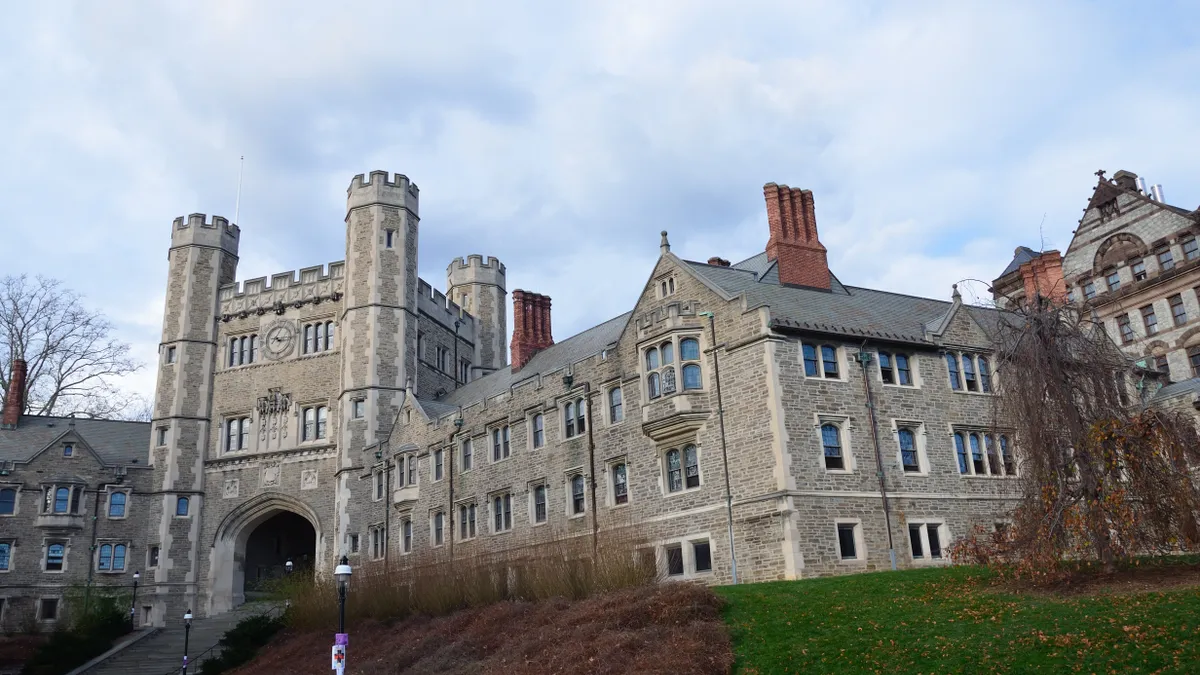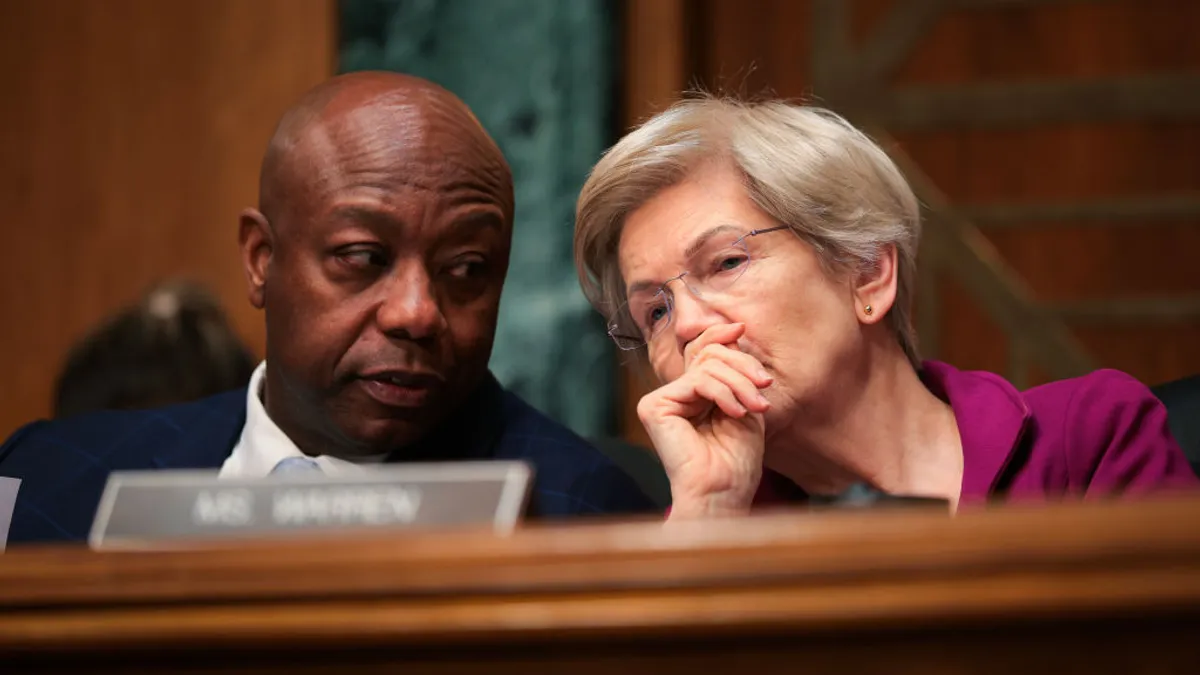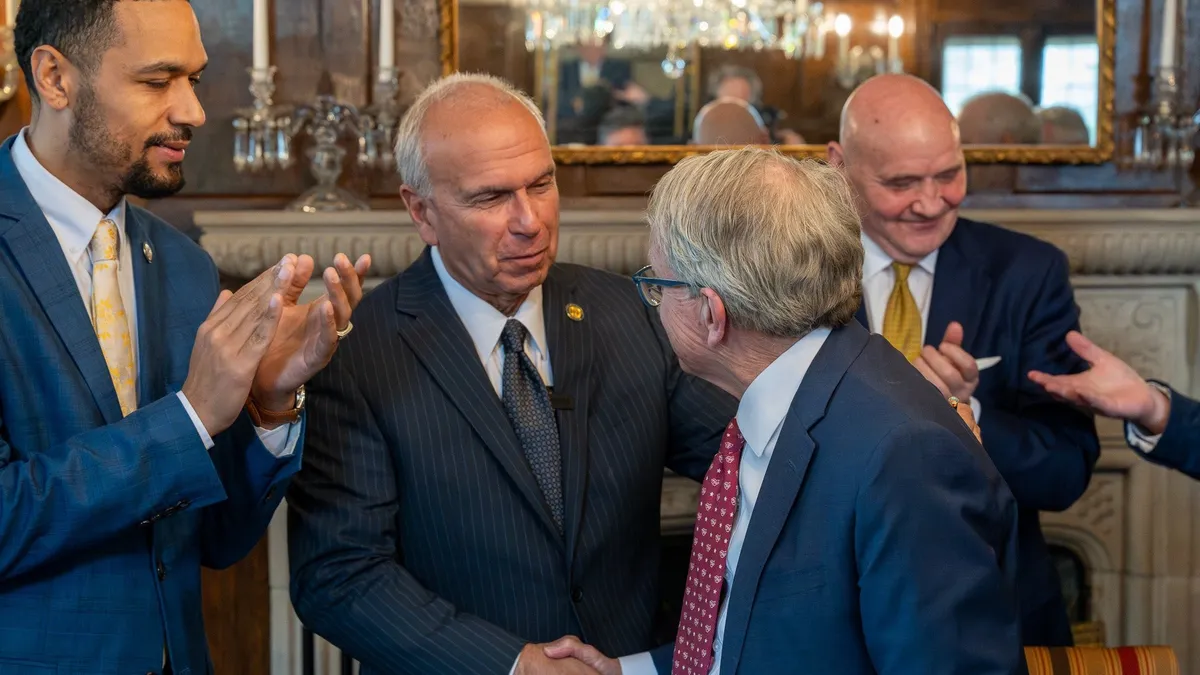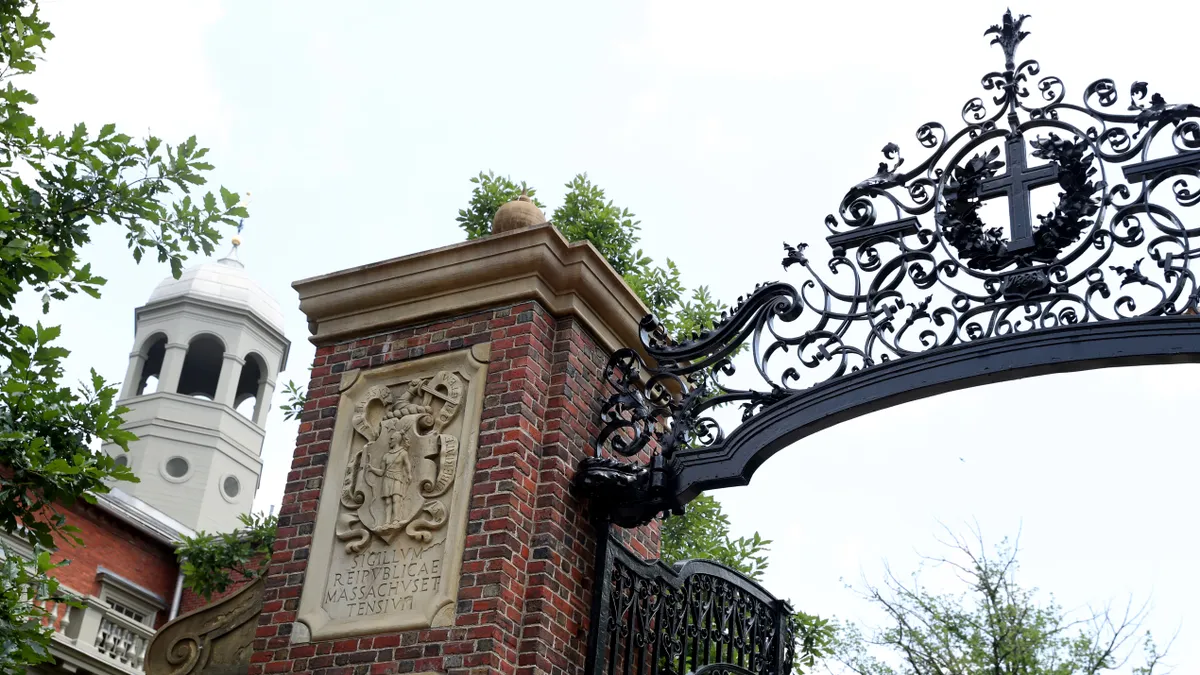The Federal Trade Commission sued Grand Canyon University and its educational services provider last week, alleging that the institution deceived students about the cost of its doctoral programs and misrepresented itself as a nonprofit college.
Grand Canyon University has about 118,000 students, around three-quarters of whom are enrolled online. It agrees to pay 60% of its tuition and fee revenue to a company called Grand Canyon Education, or GCE, for services like marketing, recruitment and student counseling.
The FTC’s lawsuit targets both the university and company, alleging that Grand Canyon University operates “for the profit of GCE and its investors.” It accused the university of violating federal laws governing commerce and telemarketing.
The legal challenge ramps up federal scrutiny of the large Christian college, which was recently slapped with a $37.7 million fine from the U.S. Department of Education over similar allegations.
The FTC’s lawsuit points out that Grand Canyon University President Brian Mueller also serves as the chief executive of GCE, receiving a salary, bonuses and other compensation from both the college and its sole marketer. It accuses Mueller and GCE of using the university to advance the company’s for-profit business.
Despite this, the lawsuit contends, the university has falsely advertising itself as a nonprofit to prospective students.
The lawsuit also alleges that both Grand Canyon University and GCE told prospective applicants that the institution’s accelerated doctoral programs cost the equivalent of just 20 courses, even though nearly all students must take more than that number.
Fewer than 2% of graduates of Grand Canyon University’s doctoral programs finished their degrees within the cost advertised by the institution, according to a recent Education Department estimate.
"Grand Canyon deceived students by holding itself out as a non-profit institution and misrepresenting the costs and number of courses required to earn doctoral degrees," Samuel Levine, director of the FTC’s Bureau of Consumer Protection, said in a statement. "We will continue to aggressively pursue those who seek to take advantage of students."
In a statement shared with Higher Ed Dive on Tuesday, Mueller called the FTC’s allegations the “height of absurdity.”
And in an emailed statement Tuesday, GCE said it will vigorously defend against any accusations made against it. “We believe the claims to be baseless and without merit,” the company said.
Is Grand Canyon University a nonprofit?
The lawsuit calls into question Grand Canyon University’s nonprofit status. While the IRS considers the university a nonprofit organization, the Education Department treats Grand Canyon University as a for-profit college for the purposes of Title IV financial aid.
Colleges seeking to convert from for-profit institutions to nonprofits go through multiple steps to do so. First, they must be transferred to an organization deemed tax-exempt by the IRS. Then, they must seek permission from the Education Department to take part in federal student aid programs as a nonprofit.
Grand Canyon University went through this process.
The institution used to be owned by GCE. But in 2018, the university split off from the company to become a separate entity and transform into a nonprofit. It also struck a contract with GCE to provide educational services. The IRS greenlit the university’s nonprofit status under the spun-off structure.
As part of the 2018 change, Grand Canyon University asked the Education Department to switch its status from for-profit to nonprofit.
But the agency rejected that bid in 2019. In a lengthy letter explaining its decision, the Education Department said the primary purpose of the contract between the university and company was to “drive shareholder value for GCE with GCU as its captive client — potentially in perpetuity.”
The FTC echoes those allegations in its new lawsuit.
Under the contract, GCE is the exclusive marketer of Grand Canyon University and communicates with prospective students about their “applications, program requirements, and financing options,” according to the FTC complaint. It also helps with services like accounting, human resources and financial aid.
However, the fees GCE receives aren’t proportional to the company’s costs for providing those services, according to the lawsuit. If Grand Canyon University’s revenue from tuition and fees rise faster than operating costs, “GCE disproportionately benefits,” the lawsuit alleges.
Additionally, GCE doesn’t provide university services like student housing and athletic arena operations — but it still receives revenue from those sources, according to the lawsuit.
Bob Romantic, a spokesperson for Grand Canyon University, said that revenue-share agreements are common in higher education.
“GCU’s master services agreement with GCE follows those industry norms, including the 60-40% revenue split the FTC cited,” Romantic said in an email. “In fact, GCU receives higher levels of service for that split than many institutions receive.”
After the 2018 transaction, Grand Canyon University advertised that it had become a nonprofit institution to entice students to enroll, the FTC lawsuit alleges. The following year, however, the Education Department directed the university to stop advertising itself as a nonprofit institution.
In a statement, Mueller said it was nonsensical for the FTC to take issue with Grand Canyon University calling itself a nonprofit in the 18 months following the 2018 transaction.
“The U.S. Department of Education waited 18 months after the transaction to announce it would not recognize our lawful nonprofit status for the purposes of Title IV funding and demanded at that time that, moving forward, GCU not identify itself as a nonprofit institution,” Mueller said. “We disagreed with that opinion but cooperated as a good faith gesture.”
Grand Canyon University in 2021 filed a lawsuit against the Education Department’s decision to treat it as a for-profit, a challenge that is pending before a federal appellate court.
What do Grand Canyon University’s doctoral programs cost?
Since at least 2018, Grand Canyon University has marketed its doctoral degrees as accelerated programs, the lawsuit states. It has listed total tuition and fees for these programs as between $40,850 and $50,000 in its enrollment agreements, according to the complaint.
However, almost all doctoral students have to take and pay for continuation courses, the FTC said. During these classes, they would conduct research and revise their dissertations to complete program requirements. The university influences how many continuation courses students need, according to the complaint.
“Students’ ability to satisfy GCU’s requirements may be, and has been, thwarted and delayed by GCU’s actions or inaction, such as reassignment of faculty, inconsistent demands during the dissertation review process, and delays caused by the conduct of faculty appointed by GCU to various roles in the dissertation review process,” the lawsuit alleges.
The FTC alleges that most students who enroll in Grand Canyon University’s doctoral programs are never awarded their intended degrees. Many of these students leave without completing their programs because they can’t afford the additional courses beyond the 20 that are advertised, the lawsuit says.
Since the FTC notified Grand Canyon University of its investigation, the institution added a statement on its website clarifying how many continuation courses the typical student needs, according to the complaint. The university said from 2011 to 2022, the average doctoral student has taken 9.9, per the lawsuit.
However, the FTC’s lawsuit says this acknowledgement is buried in the university’s website and does not include information about the cost of these additional courses. The university also doesn’t include this information in the description of doctoral program requirements, the FTC said.
These allegations echo those made by the Education Department. In October, the agency fined Grand Canyon University over accusations it falsely advertised the price of its doctoral programs to more than 7,500 students since 2017.
At the time, Federal Student Aid Chief Operating Officer Richard Cordray said the action was intended to uphold “the integrity of financial aid programs.”
Grand Canyon University appealed the fine in November. In a statement at the time, Mueller accused the Education Department of singling out the university by selectively enforcing its rules and argued that the institution’s disclosures aren’t misleading.
“The fact that the FTC is using the same accusations as the Department of Education makes it clear that the two agencies are coordinating efforts and suggests that the FTC’s real goal is to further burden GCU by forcing it to defend against duplicative lawsuits,” Mueller said in a statement shared with Higher Ed Dive on Tuesday.























